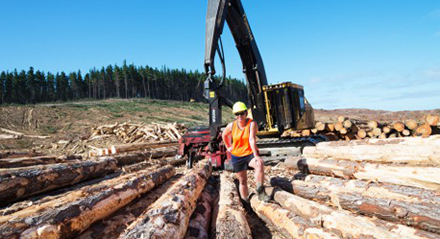
The New Zealand Government is supporting a primarily female training program in Northland that will help address labour shortages in the male-dominated forestry industry, this was announced by New Zealand’s Regional Economic Development Minister Shane Jones and Employment Minister Willie Jackson. Source: Timberbiz
The Provincial Growth Fund (PGF), through the He Poutama Rangatahi (HPR) program, will invest NZ$421,050 in Wahine Toa, a five-month intensive pilot initiative to prepare mostly young women for training and employment in the forestry sector.
“Investing in skills and training is a clear priority for this Government and I’m pleased to see both HPR and the PGF’s other employment scheme, Te Ara Mahi, already making a difference to people’s lives up and down the country,” Minister Jones said.
“As Forestry Minister, I know labour shortages are a significant concern for the sector so initiatives like Wahine Toa are a great investment. The industry is also trying to encourage more women into forestry so this programme ticks both boxes.”
Minister Jackson said: “We know that supporting young people into long-term jobs delivers benefits for the whole community.”
The program will be predominantly women, but has a small cohort of men who will be in a separate crew.
“It’s great to see programs aimed at encouraging more women into the male-dominated forestry industry and I wish the participants every success,” Minister Jackson said.
“Wahine Toa is modelled on the Eco Toa (Ecological Warrior) initiative, another HPR program funded through the PGF that was announced in March this year. The initiatives focus on rangatahi aged between 16 and 24 who not in education, employment or training (NEET). Through training, individualised pastoral care and financial support, both programs help young women get onto a path to sustained employment.
“The success of programs like Eco Toa shows that when Government partners with local people, we can make a real difference in the lives of young people who are at-risk of long-term unemployment.
“Projects like these are all part of the Government’s wider efforts to tackle youth unemployment in the regions.”







